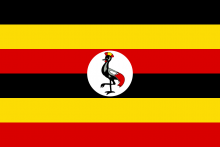Uganda is a country of about 47 million people in East Africa (World Bank, 2022). The country’s higher education system is one of the oldest in the region. Makerere University was a pioneer in formal open and distance learning (ODL) in higher education.
COL’s current work in Uganda is primarily in the areas of higher education, Lifelong Learning for Farmers (L3F), gender equality and women’s empowerment through skills development and technology-enabled learning (TEL). Learners from Uganda are also participating in COL’s free online courses and benefitting from other openly resources available.



